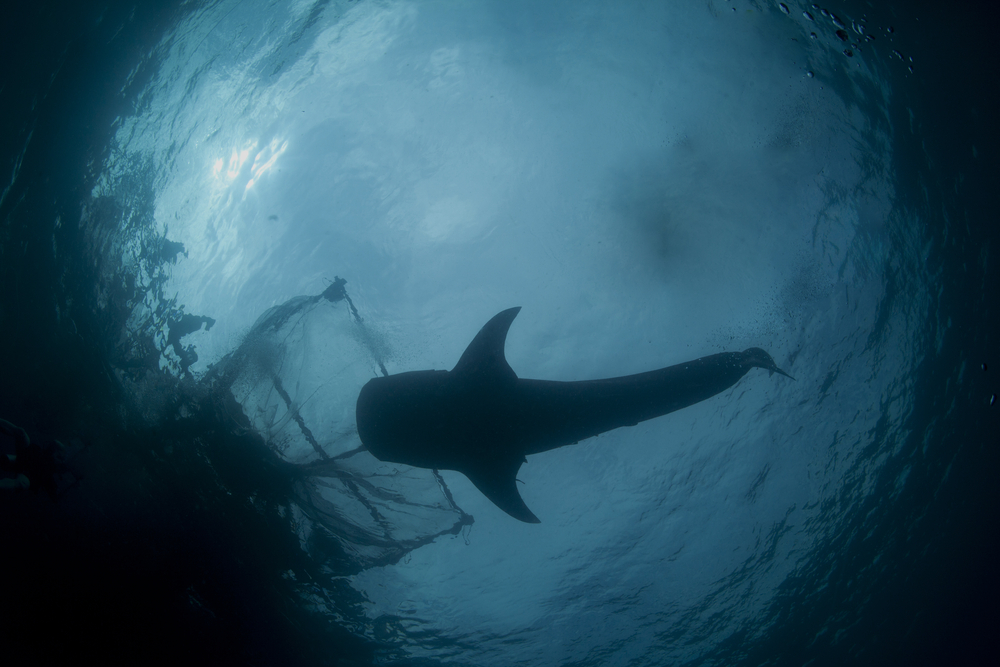
The lobstermen and the whalers are at each other’s throats in Maine. The former need to use strong ropes to pull up their lobster traps from the ocean floor. The latter claim that this gear the former uses enmeshes their bread and butter, that is, whales, who are needlessly killed in this manner.
It would be difficult to name other industries or commercial interests that contended against one another in any such manner. Yes, those producing peas and those producing carrots compete against each other, as do bicycles and fish, shoes and socks. But none of the are suing the others over infringement of their territory. City taxi cabs, Uber, and Lyft are in competition with one another. But at least it is clear from a justice point of view what should occur: the latter should be allowed to compete against the former, no matter how loud and powerful the squeal of the first kids on the block.

No, you would have to go back a century or two ago to find any analogous philosophically intractable situation, to when farmers and ranchers were squabbling with each other over water rights.
What’s going on off the seacoast of Maine? What is going on there is a lack of clear private property rights, just as in this previous, historical case. The law, at present, does not allow anyone to own any aspect of the ocean. That is precisely the problem, and the explanation for the present imbroglio.
Before your false teeth drop right out of your mouths and bite your toes, listen up for at least a little bit. Yes, this solution, ocean privatization, sounds more than just a little preposterous. Even such erstwhile defenders of private property rights as Robert Nozick dismissed this erstwhile free enterprise option. He sneered at the idea of anyone pouring a can of tomato juice into the sea as a means of owning part of it, a la John Locke’s homesteading principle. Instead, he averred, such a person would merely lose this drink of his.
However, in the absence of ownership, how are we to decide which is economically more important, whales or lobsters? In every other corner of the economy this altercation is settled by bidding for the resource in question. Should this specific amount of steel be used for railroad tracks or high-rise building construction? Should these textiles be incorporated into a rug or clothing? Thousands of such potential debates are settled every day, every hour, every minute, without fuss or fanfare. The competing parties offer bids to the owners of these resources and that is how they are settled without controversy.
But if competitive bidding is to occur, someone must own the resource in question.
There is nothing unique about oceans (nor rivers, lakes, aquifers, when farmers and ranchers were having wars over them). Other liquids are privately owned: orange juice, milk, oil, soft drink colas, wine, beer, booze, mercury. (Blood, too, is a liquid, but not a trouble free one, since there are numerous regulations, price controls and other interferences with economic freedom in this sphere of the economy). Yes, water moves around a bit more than land, but there is solid water (icebergs) and moving land (mudslides, volcanoes). If we are to rationalize this part of the economy, we must stop thinking of land amenable to privatization, and water, not.
Yes, yes, it cannot be denied, things are rather a bit more complicated with rivers, lakes oceans, aquifers. That only makes it more of a challenge to privatize them; it does not constitute an insuperable barrier. We already have some of the complementary technology available: electrified fences in the water, for example. All we need are laws that allow this. Then more would become available.
The main reason for the failures of the economies of the USSR, West Germany and North Korea was lack of private property rights. We are now living under the Sovietization of water resources, with all the attendant tragedies of the commons associated with such failures. Please do not dismiss out of hand bringing in water resources under the system that has functioned so well on the land.
Walter E. Block is Harold E. Wirth Eminent Scholar Endowed Chair and Professor of Economics at Loyola University New Orleans and is co-author of the 2015 book Water Capitalism: The Case for Privatizing Oceans, Rivers, Lakes, and Aquifers. New York City, N.Y.: Lexington Books, Rowman and Littlefield (with Peter Lothian Nelson ).

READER COMMENTS
MarkW
Jan 23 2023 at 3:43pm
The law, at present, does not allow anyone to own any aspect of the ocean.
When we were in Seattle we stopped at this place. Signs there claimed they owned the bottomland where they harvested their oysters. I don’t know though, if they were grandfathered somehow, or if the rules differ when the lands dry out at low tide. Anyway, there seems to be some precedent.
Warren Platts
Jan 23 2023 at 4:26pm
Even if the Maine lobster fisheries were all privately owned, the problem would not be solved. Environmental ethics demands that the right whales be taken into account regardless. After all, even on privately owned land, you are not permitted to take endangered species that may be getting in the way of your profit-making operation.
Joseph
Jan 23 2023 at 5:16pm
“The main reason for the failures of the economies of the USSR, West Germany and North Korea”
Did you mean East Germany?
Jon Murphy
Jan 23 2023 at 5:48pm
That, and any cost becomes more elastic over time. These challenges can be overcome and any policy necessarily has a half-life. So, even if some sort of common pool resource legislation is necessary at first, there is no reason to think it will be into perpituity.
Warren Platts
Jan 26 2023 at 2:50am
Property rights don’t last until perpetuity?
Jon Murphy
Jan 26 2023 at 7:21am
Huh?
steve
Jan 23 2023 at 6:53pm
Assuming you could own property in the ocean and assuming that the lobster people get to own some of that, how do you enforce the property rights? How many of the right whales are able to read and honor private property?
Steve
Mactoul
Jan 23 2023 at 7:02pm
Property right in ocean can only exist consequent to some country first asserting sovereignty over that area of ocean. Otherwise why should China for instance respect property rights of say Americans over an area of ocean and respect the jurisdiction of American courts over disputes over property rights?
Thomas Lee Hutcheson
Jan 25 2023 at 5:10pm
We don’t need a property right to a piece of the ocean, but to the whales.
Thomas Lee Hutcheson
Jan 23 2023 at 10:23pm
A standard problem of negative externality. Establish the value of a whale and charge the lobsterpersons a fee for each whale killed. This would create an incentive to innovate lower whale-killing technologies.
Richard W Fulmer
Jan 24 2023 at 10:35am
Interesting idea. Are self-propelled lobster traps that don’t need to be tethered to buoys possible? Lobster traps are set at a maximum depth of 100ft (beyond that, the water gets too cold for lobsters). VLF and ELF radio signals can pass through several hundred feet of water. So, a lobsterman could sink his traps, monitor them electronically to determine whether they’ve caught anything, and signal them to come to the surface when they have.
If self-propulsion is too expensive, perhaps the trap could contain a buoy and rope that it would release on command.
Warren Platts
Jan 26 2023 at 2:53am
A standard problem of negative externality. Establish the value of a human and charge the humanpersons a fee for each human killed. This would create an incentive to innovate lower human-killing technologies.
Jon Murphy
Jan 26 2023 at 7:23am
That’s basically what wergild (and it’s modern version, tort) is
Comments are closed.